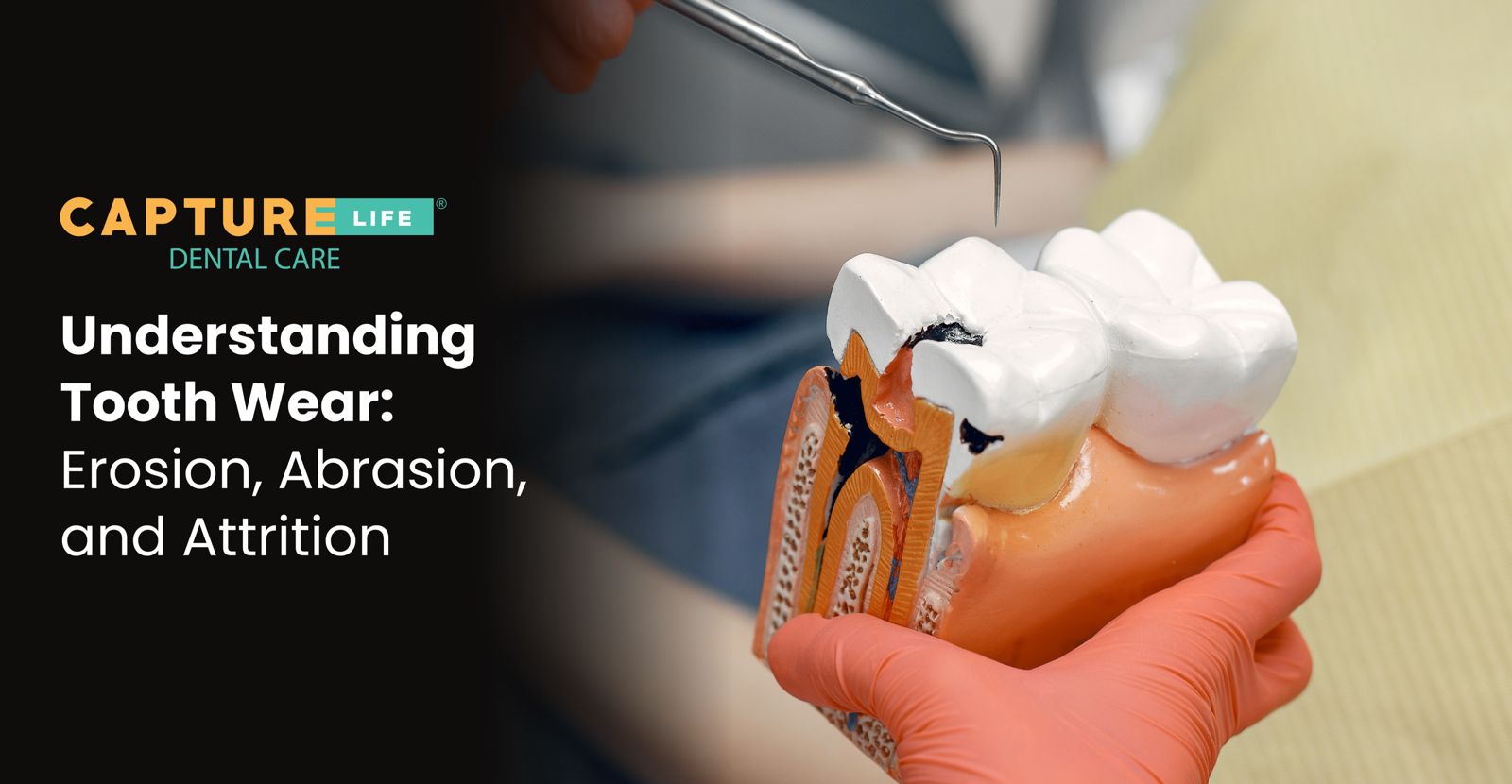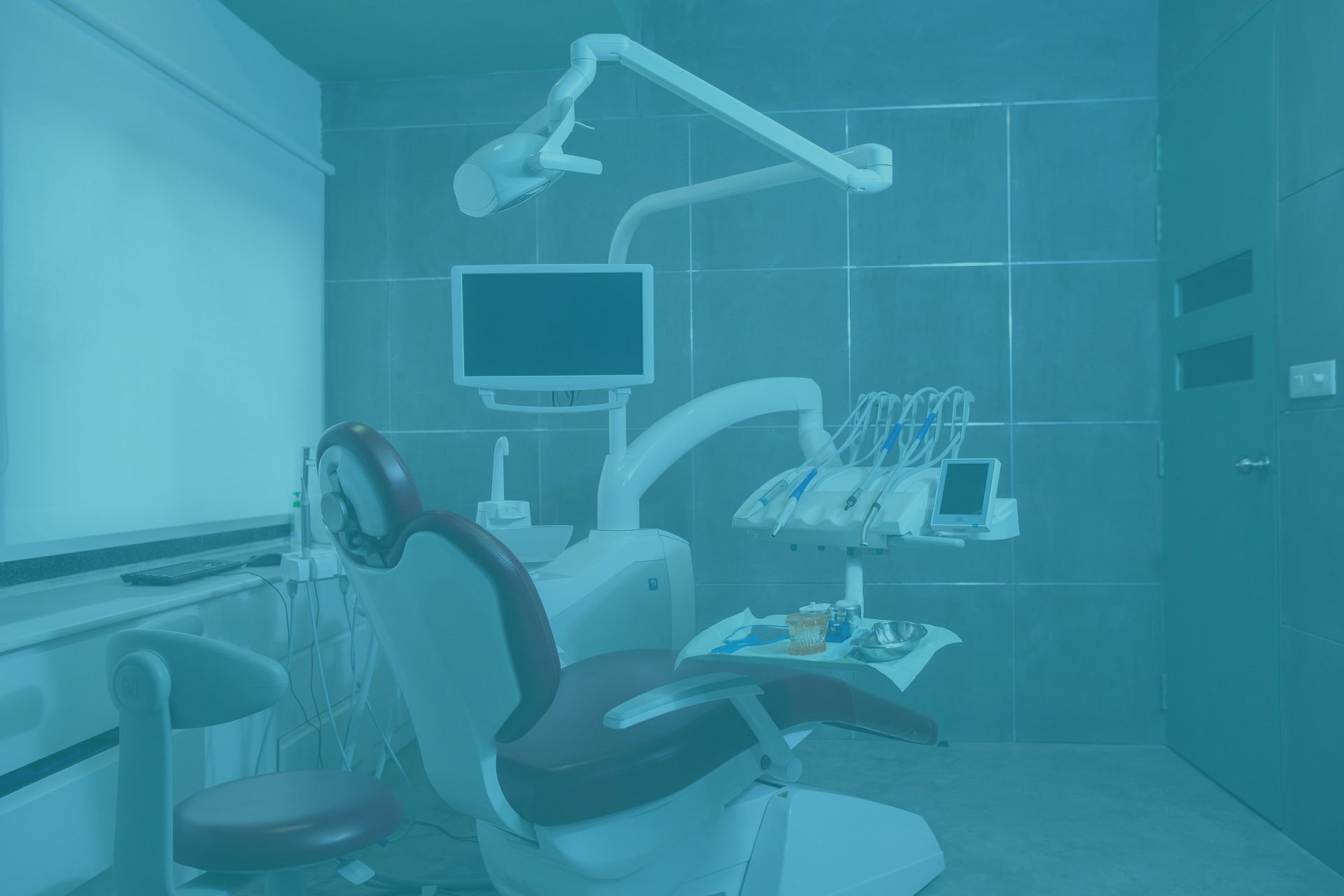
30 Sep Understanding Tooth Wear: Erosion, Abrasion, and Attrition
Tooth wear is a multifactorial condition affecting both appearance and function. It occurs when the hard structure of teeth, the enamel, is lost due to chemical, mechanical, or functional causes. Understanding the differences between erosion, abrasion, and attrition is essential for effective oral care, dental care, and oral hygiene.
Dental Erosion: Chemical Wear
Dental erosion is caused by acids that dissolve tooth enamel without bacterial involvement. Common sources include acidic foods and beverages, gastroesophageal reflux disease (GERD), and certain medications. Studies report that the prevalence of dental erosion ranges from 4.6% to 32.6% globally depending on age and diet. Erosion often starts on the palatal surfaces of upper front teeth and can progress if left unchecked.
Dental Abrasion: Mechanical Wear
Abrasion refers to the loss of tooth structure due to mechanical forces unrelated to tooth-to-tooth contact. Aggressive brushing, hard-bristled toothbrushes, or habits like nail-biting contribute to this type of wear. Research indicates abrasion affects 23% to 70% of individuals, often presenting as V-shaped notches near the gumline. Proper brushing techniques and using soft-bristled brushes can significantly reduce risk.
Dental Attrition: Functional Wear
Attrition occurs when tooth surfaces wear against each other, usually due to grinding or clenching. It is prevalent in individuals with parafunctional habits, including bruxism. Studies show that 24% to 46% of adults experience measurable attrition. Attrition is more pronounced in older adults and can affect chewing efficiency, jaw alignment, and overall dental health.
Prevention and Maintenance
Preventing tooth wear involves lifestyle modifications and routine oral hygiene. Limiting acidic foods and beverages, practicing proper brushing techniques, and using fluoride toothpaste are key preventive measures. Nightguards can protect against attrition caused by grinding. Regular visits to dental clinics ensure early detection, while restorative treatments such as bonding, crowns, or veneers repair damaged teeth.
Maintaining overall teeth care also supports systemic health. Proper hydration, balanced nutrition, and avoiding harmful habits are essential adjuncts to clinical care.
Professional Guidance Matters
Addressing tooth wear requires both awareness and intervention. Consulting a dental specialist in Banjara Hills ensures tailored strategies for prevention, monitoring, and restoration. Professional guidance enhances long-term oral health and preserves the integrity of your teeth.
For expert advice and comprehensive dental care, visit Capture Life Dental Care to safeguard your smile.

